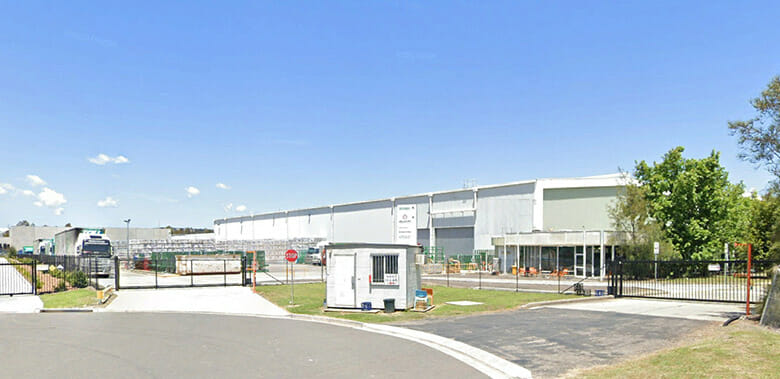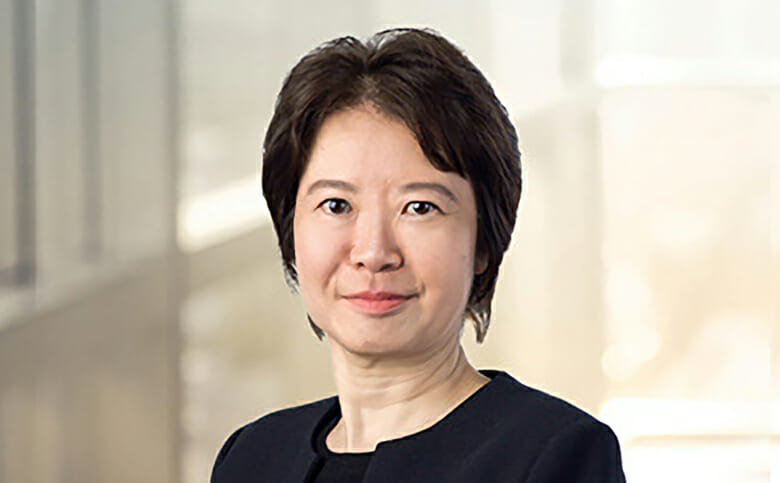
MLT bought this Sydney property as part of a 10-asset deal in March
Despite expanding its portfolio by two properties in its most recent fiscal year and collecting nearly 8 percent more rent, Mapletree Logistics Trust (MLT) saw its income distributable to unitholders edge up by just 1.1 percent in the first quarter, as rising interest rates and currency fluctuations weighed on its performance.
The trust’s S$109.2 million ($81.75 million) in income distributable to unitholders translated to distributions per unit (DPU) of 2.268 Singapore cents for the first quarter, which was unchanged from a year ago, but was 1.8 percent higher than in the preceding three months. For the 12 months ending 31 March, MLT said in its earnings report released Monday that it achieved DPU of 9.011 Singapore cents, which marked an increase of 2.5 percent from the previous year, with distributable income for the 12-month period up 10.8 percent.
Among the largest challenges to the trust’s profitability were rising interest rates, which caused its borrowing costs to surge 25.5 percent last quarter compared to a year earlier, despite the trust having reduced its debt by nearly 2 percent during the period. With central banks continuing to tighten lending conditions in some of its largest markets, the manager advised of potential lower returns in the months ahead.
“Underpinned by our portfolio of quality assets, MLT’s performance has remained resilient and stable,” Kiat Ng, the trust manager’s chief executive officer, said in a statement. “However, headwinds from high borrowing costs and weakening regional currencies against Singapore Dollar will continue to impact our performance for a while.”
Tenants Turning Cautious
With a portfolio of 185 industrial properties across Asia Pacific worth S$12.8 billion, Temasek-backed MLT said sliding currency values in its markets beyond Singapore were the primary cause of a 2.2 percent year on year dip in its gross revenue, which settled at S$178.9 million for the January through March period, despite efforts to mitigate the impact via forward currency contracts.

Kiat Ng, CEO of MLT’s manager
These currency challenges resulted in net property income (NPI) falling by 1.8 percent compared to a year earlier to total S$154.3 million. For the financial year ending 31 March, gross revenue was still up by 7.7 percent at S$730.6 million, thanks to stronger leasing at both its existing and newly acquired properties which more than offset the trust’s challenges from depreciation of third currencies.
Net property income for the financial year also grew by 7.2 percent to S$42.6 million from the preceding 12-month period.
While its Singapore and mainland China-heavy portfolio achieved 97 percent occupancy and a weighted average term to lease expiry of 3.1 years, the REIT manager said that its tenants are now slower to commit to new deals and have grown wary of new expansion.
In a bid to coax these cautious clients into new commitments, MLT’s manager is looking for ways to ensure it has the right properties in its portfolio, while also spending to upgrade existing assets.
“The manager remains committed to its portfolio rejuvenation strategy and will continue to evaluate opportunities to divest non-core assets and redeploy capital into asset enhancements and investments with higher growth potential,” it said. “The manager will also maintain focus on optimising portfolio performance and cost management.”
As of 31 March, the overall valuation for MLT’s portfolio, which includes properties in Australia, India, Japan, Malaysia, South Korea and Vietnam, in addition to Greater China and Singapore, dipped by 2.3 percent to S$12.8 billion, compared to a year earlier, despite the trust having added two new assets during the period. The trust’s manager attributed the sliding valuation to currency depreciation in China, Japan, Australia and South Korea which undermined the value of its assets in those markets.
Adding Assets
Despite rising debt costs, MLT’s manager said the REIT has adequate credit to service its needs through 31 March next year, with an estimated S$374 million in obligations maturing during the period.
The manager said about 84 percent of its S$4.9 billion in debt as of end-March is either hedged or borrowed at fixed rates to mitigate risks, as every 25 basis point increase in base rates can slash the REIT’s distributable income by S$490,000 million per quarter.
Growth drivers for MLT are potential cuts in interest rates, DPU-accretive acquisitions and asset enhancements, as well as opportunities to boost rents and occupancy, according to a research note by equity analysts at Morgan Stanley Asia (Singapore), which said that the trust could boost returns through divestments.
In late-March, MLT’s manager announced a S$904-million acquisition of a portfolio of logistics properties in Japan, South Korea and Australia from affiliates of CBRE Investment Management, as well as plans to purchase two logistics assets in China and sell off a Hong Kong property.
From that set of deals, the REIT closed its purchase of six logistics assets in Greater Tokyo, Nagoya and Hiroshima late last week, boosting its portfolio to 191 properties at the end of April. Completion of the Seoul and Sydney acquisitions have yet to be announced.
Morgan Stanley analysts said MLT’s full-year DPU of 9.011 Singapore cents beat their expectations by roughly 4 percent.
Leave a Reply